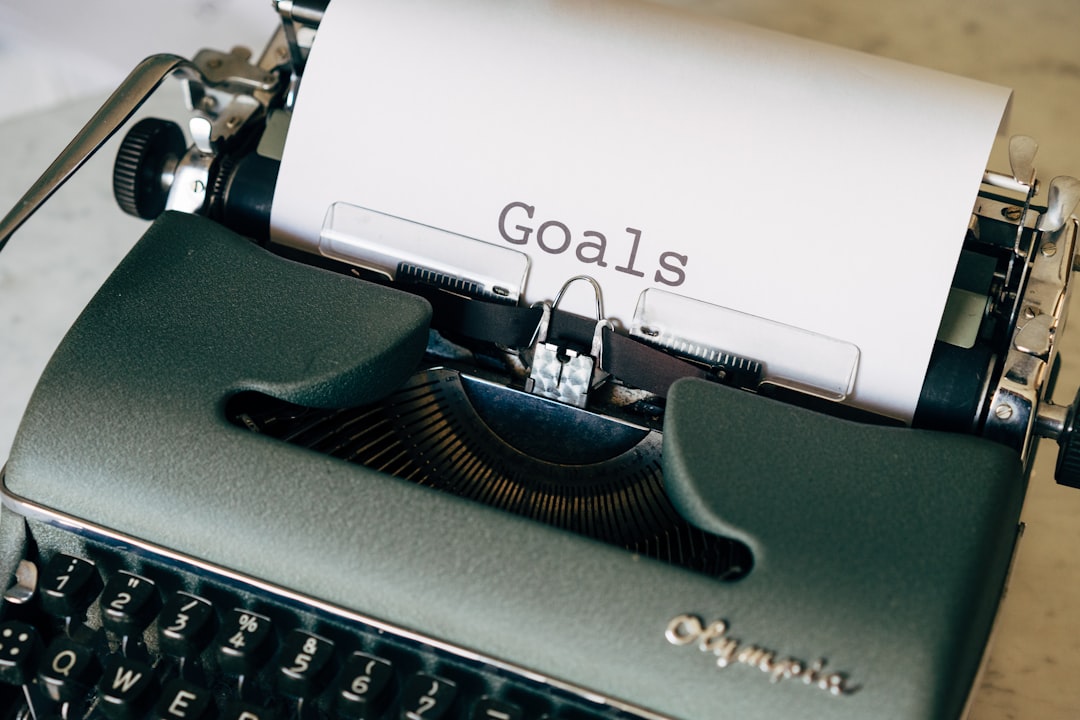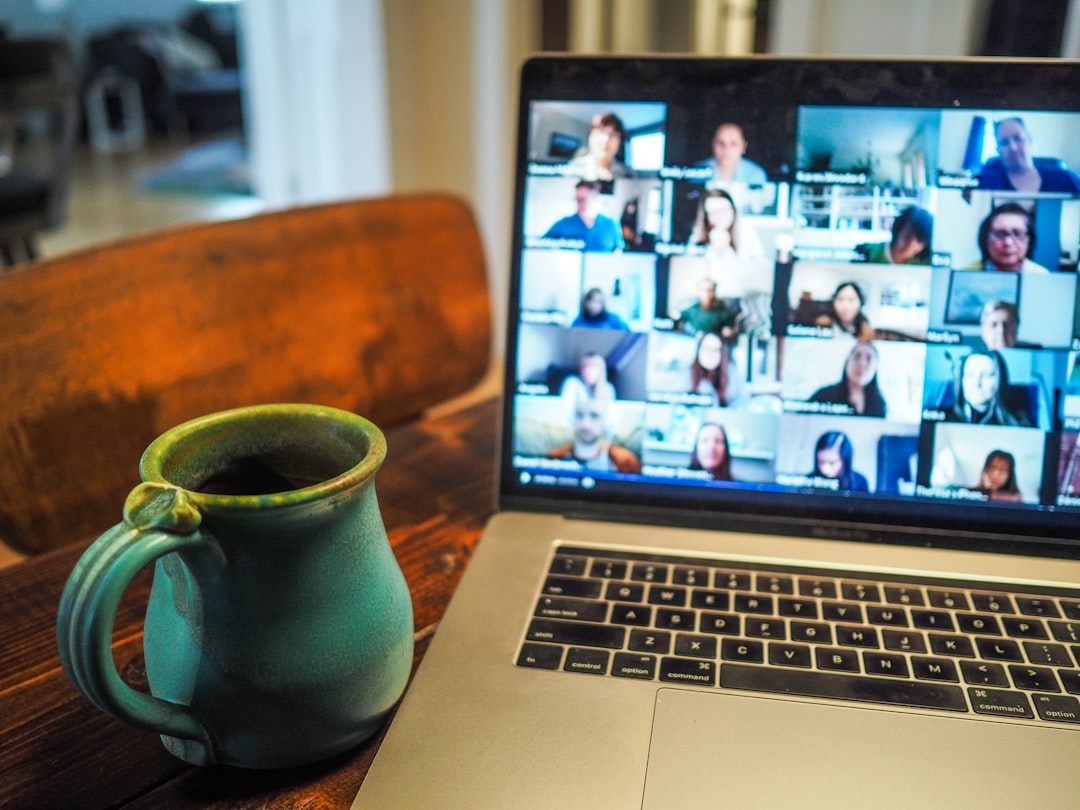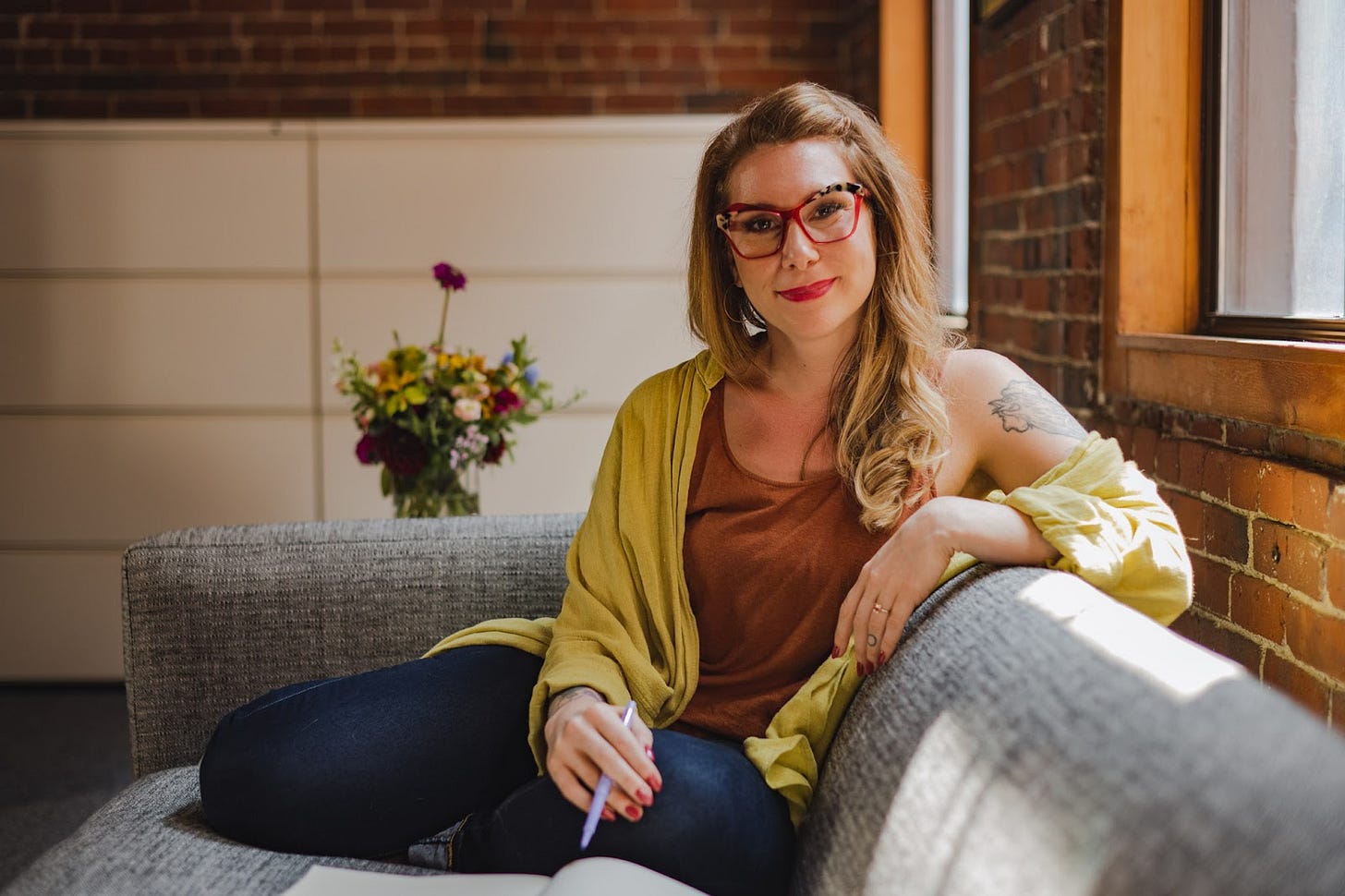How Chronic Illness Revolutionized My Definition of Success
A Guest Post by Dr. Kate Henry

Want a chance to win paid subscriptions to Publish Not Perish and Tending with Dr. Kate Henry? Make sure you read the bottom of the post!
Part of my work as a Productivity Coach for academics is guiding people to reimagine what productivity can look and feel like. One of the questions I ask in an effort to untangle the mess of overwork in academia is, “What does success look like for you, academically, professionally, and personally? Where did you learn this?”
I myself have two answers to this question, the first of which dates back to elementary school. Sitting at my little wooden desk in first grade, I gripped my yellow pencil and wrote words that were triple the length of my classmates’ spelling lists. I was a gifted speller, which meant my quizzes were personalized to make them more challenging. Instead of scrawling C-A-T or H-O-M-E I confidently scratched words like dictionary or whether on my paper. Being a good student became my identity, a way to designate myself as “intelligent” and therefore “special.”
My second lesson on success was in high school. I was a pink-haired weirdo, clomping into my first period in platform goth boots. I was still a straight-A student, but I spent less free time reading fantasy novels to develop my vocabulary and more time writing poetry and painting. Just like spelling in first grade, I had a knack for creating. At some point, I decided it would be best to optimize my creative hobbies, and I tasked myself with choosing which I would become successful at and which I would relegate to a fun pastime.
Growing up in a small Pennsylvania town, I had little access to visual art outside of the projects we learned in art class and a yearly Art Club trip to a museum in a big city that was hours away. In contrast, my high school library had a shelf of poetry books, which I pored over for inspiration and reference as I penned my own, propped up in my bed on most weekends and evenings.

So, at 16, I decided that I would become a poetry professor. This set off a chain of events:
Summer poetry camps, which would help me get into college.
Undergrad double major in creative writing and literature, which would help me to get into an MFA program.
An MFA Degree in Poetry and then a book of poetry published with a small press, which would help me get a professor job at a fancy liberal arts college, but only if I also got an MA and PhD.
An MA and PhD in Rhetoric and Composition, plus an Advanced Certificate in Feminist Studies to boot, which would finally help me secure the vision of success I had been working hard to ensure for years: English professor with tenure.
Throughout these years, it was invisible to me that I was melding my productivity with my worth and identity. I had primed myself to equate “success” with accolades, which I earned through overextending myself. I had been raised to believe awards and opportunities were for people who did the best, and while these achievements tasted sweet when I first encountered them, the bubble of joy always popped too soon. My expectation that I would succeed was so inherent to my identity that the idea of failure—not getting the job, not getting the publication, not getting the grade—was a horrifying non-option. Rejections did come, of course, but every time I didn’t “win,” I dove into another project or set a new goal to keep myself occupied.
When I got to graduate school, doing the bare minimum was never enough. My tendency to always do a little more to check off my bottomless to-do list made me a great scholar. Teaching and passing my comprehensive exams was fine and all, but what if I also wrote an article and peer-reviewed another? Submitted to all of the conferences? Taught an extra class? Took on a second or third job? These “extras” felt necessary if I wanted to stack my CV.
Gaining Clarity Through Illness
But then, three years before I was slated to finish my PhD and make my professorship dreams come true, I got sick.

In early 2017, my dream of pursuing a successful career in academia was shaken by the onset of severe pain in my low back and hips. I sought out support from doctors and body workers, had MRIs and X-rays, and while physical therapists shifted my sacrum back into place week after week, my medical providers were collectively stumped as to why my pain had erupted so suddenly and intensely. When my test results came back clear, I began to wonder if it was all in my head, an experience common to too many folks who live with chronic health conditions. The onset of fatigue and joint pain combined with the recurring fevers I had been having since I was young finally led to a diagnosis of two chronic autoimmune conditions during my last semester of graduate school in 2020—Lyme Disease and Epstein-Barr Virus.
My chronic health conditions felt particularly at odds with my life as an overachieving academic. Sitting for long periods of time was excruciating; brain fog made writing difficult; and visiting dozens of doctors in search of relief zapped my time and energy. I did all the “right things” as a patient, but chronic illness doesn’t follow a rulebook. I did my daily physical therapy exercises. I did treatments that caused herxeimer reactions, a sign that the Lyme bacteria were dying—but not without a fight, laying me up on the couch aching and shivering like I had the flu.
When my 10-hour workdays were limited to two or three hours due to my pain and fatigue, I had no choice but to reevaluate my approach to productivity. The clarity I gained through that culling process changed the trajectory of my life.
I acknowledged that I was a workaholic, something I would write about for The Temper in my article, “How Recovering from Alcohol Use Disorder Helped Me Recognize My Workaholism.” I feel like the switch in my brain that should tell me when I’ve reached “enough” is busted. The difference, however, between alcohol and work is that in late-stage capitalism, you can’t completely eliminate work from life. So, this recovery process means I need to be very intentional around when and how much I work, using tools and approaches to help me turn the switch from ALWAYS ON to OFF.
Why I Chose an Alt-Ac Path
My vision of success morphed from pursuing a tenured professorship into building a life with more spaciousness for rest so I could care for my chronically ill body. I noticed that the personal resources I had previously taken for granted—time, energy, focus, physical comfort, and mental health—were actually limited, and in order to protect my quality of life, I would need to make a big shift. As terrifying as it felt, that shift meant coming up with a new dream for my career after the PhD.
The thought of leaving academia to pursue an alt-ac path felt sacrilegious, so I kept my desire close to my chest as I progressed on my dissertation. Luckily, I was and still am fascinated with my dissertation topic—the rhetorical work of the lesbian author Lisa Ben to undermine anti-homosexual discourse in the early to mid-20th century—and my training in archival research, feminist and queer theory, and rhetorical analysis meant I could make progress at a speed that felt accessible to me.
As I navigated finishing my PhD while living with pain and illness, I found online communities for folks who are chronically ill, which made me feel less alone. My dissertation advisor supported me not only in the needs I had around timelines and writing but also advocated for my decision to start my own coaching business instead of applying for jobs.

Through this process of reflection, it became clear to me that the larger institution of academia privileges folks who go “above and beyond.” Answering emails or doing service work after hours and on holidays, juggling three or more writing projects at once, eating lunch at your desk, or not at all, in order to hit deadlines. In exchange is the promise of a dream to set our own hours, to work in beautiful offices, to inspire the minds of our students, and to find financial and professional success. Many of my friends have found this dream fulfilled, and maybe you yourself have this now or are in pursuit of it. I’m genuinely happy for them, and for you. It was my dream, too.
For me, success ultimately looked like leaving the space of academia to pursue an alt-ac path as a coach and consultant for knowledge workers. I’m inspired by folks who are making on-the-ground shifts in their universities, organizations, and classrooms to make graduate school more accessible to people living with chronic illness. Because the majority of my coaching clients are graduate students who also live with chronic illness, I know a supportive and informed advisor is sadly not the norm. While we advocate and wait for all students to feel supported by their programs, other resources may be helpful.
You might find resonance in the writing of Leah Lakshmi Piepzna-Samarasina or Meghan O’Rourke, the literary journal Sick Magazine, or even following the hashtag #SpoonTheory on Instagram. Spoon theory is a metaphor developed by Christine Miserandino to explain the daily experience of having chronic illness to someone who does not share the same experience. By giving her “healthy” friend (her language) 12 spoons and taking away spoons to represent energy expenditure on tasks such as preparing for work, traveling, cooking, and dealing with emergencies, Miserandino “explained that the difference in being sick and being healthy is having to make choices or to consciously think about things when the rest of the world doesn’t have to.” The Spoon Theory thus serves as a metaphor to show that people expend energy differently.
Words of Wisdom
I want to close this post with some parting words of wisdom. All people (chronically ill or not) can define success for themselves and experiment with different paths both within and outside of academia. If you do live with a chronic health condition that affects your energy and focus, please remember that you are not alone. I hope that you can find a nourishing community with other folks who live with chronic illness, pain, or fatigue to offer you validation and camaraderie. Finally, I invite you all to think about where your own definition of success comes from and to imagine new ways to find success that honor your capacity and your dreams for a future full of community, care, and support for your needs.
Comment for a Chance to Win Paid Subscriptions!
Did Dr. Henry's post resonate with you? Do you have any questions for her? Or would you like to share something about your own journey?
Comment on the newsletter post (not the email), and one commenter at random will be chosen to receive a free one-year paid subscription to both Publish Not Perish and Tending with Dr. Kate Henry. You can either keep the subscriptions for yourself or give them away! To be eligible for the contest, you must be subscribed to both newsletters. The contest ends at 11:59 p.m. CST on Sunday, July 9th.
Dr. Kate Henry is a Productivity Coach who specializes in sustainable and well-being-oriented productivity. Dr. Henry holds an MFA in Creative Writing and a MA and PhD in Rhetoric and Composition from the University of Massachusetts Amherst. As a Productivity Coach, she guides knowledge workers to develop actionable and achievable productivity and time management practices so they can achieve short-term and long-term goals without feeling overwhelmed. In addition to her work as a Productivity Coach, Dr. Henry is an independent researcher and author. In her spare time, Dr. Henry likes to read fantasy novels, practice yoga, and listen to jazz.




Reading this was like a breath of fresh air. You not only dispelled that success has to mean always producing but offered up great examples of how to manage your health and work life. I wish I had come across your work before I had a total breakdown from over-performing in my work life! Thank you for your vulnerability.
Thank you for sharing! It can be so challenging not to equate success with productivity and accolades, but so important to resist that.